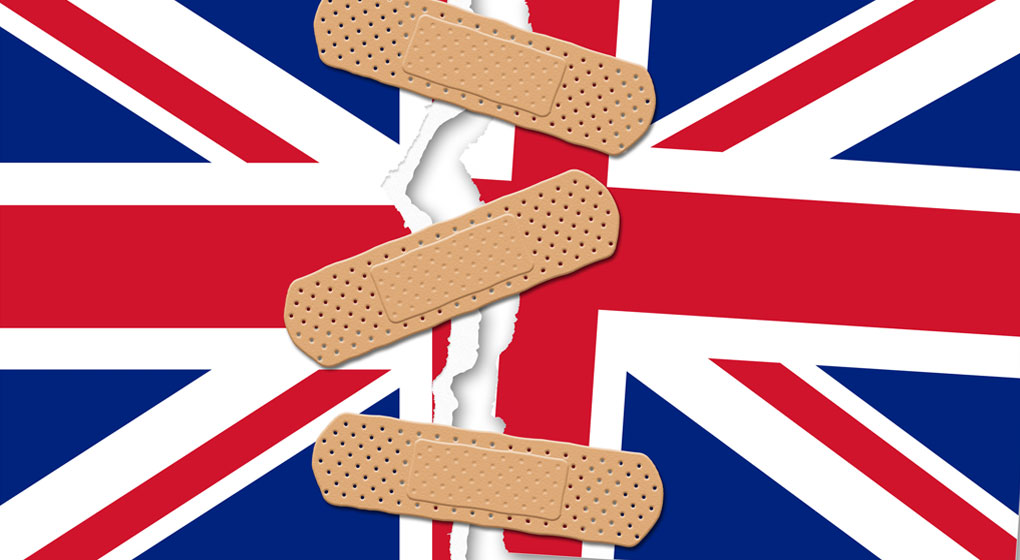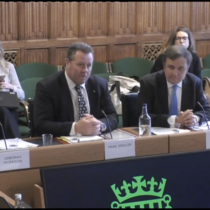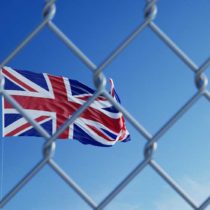A thin deal with the EU will not cover the cracks
Let’s start with the positives. We have a trade deal with the EU. For that we have to be relieved as the impact on trade would have been catastrophic without one. But while it’s a deal that avoids tariffs and quotas, at least for now, it provides no relief from the full burden of GB becoming a third country in terms of exports to the EU.
Most importantly, in terms of animal and public health requirements there is no agreement on equivalence. This means full-on export health certification requirements and both documentary and physical checks at EU borders. This did not come entirely as a surprise but the implications are very significant in terms of process, time and cost.
I’ve already mentioned this issue in previous articles but what I haven’t raised is the double whammy caused by the Northern Ireland (NI) protocol. It’s clear that the UK Government had hoped that it could secure a lighter touch in terms of GB to NI trade, but it is increasingly clear that they have failed to achieve this. For those not familiar with the issue, the Withdrawal Agreement (WA) between the UK and EU includes a Protocol on Northern Ireland aimed at avoiding a hard border between Ireland and Northern Ireland by, in effect, keeping NI in the EU’s Single Market.
The downside of this is that GB ‘exports’ to NI will face exactly the same burdens as shipments to the EU. Some short-term, temporary fixes have been agreed for trade directly into the retail supply chain which include the export of products which currently can’t be certified for export to the EU such as fresh sausages and fresh mince. But even this arrangement looks shaky.
The fact is that the EU take the view that by signing the WA and the NI Protocol, we have committed to meeting the requirements of the Single Market along with all the guarantees it offers in terms of consumer protection, public and animal health protection. That means MORE Export Health Certificates (EHCs), and while the Government has agreed to substantially support the cost of these through the Movement Assistance Scheme, it has declined to support the costs of producing the Support Health Attestations (SHAs) that will be needed by vets to certify. In other words there will be additional certification costs imposed in GB businesses in order to be able to trade within the UK single market. Something, it should be noted, that EU Single Market trade does not face.
the entire system is not designed to cope with a fast-moving fresh trade to near markets and, once the dust has settled, there does need to be re-engagement with the EU to address this
With this in mind, DEFRA’s estimate of a 500% increase in EHCs, rising to 300,000 EHCs per annum looks like a vast underestimate as this had not been factored in. Even without this additional demand, BMPA research shows that, based on the current pattern of EU trade it has individual businesses that account for over 70,000 EHCs per annum. The DEFRA figure is for all EHCs for all sectors.
The cost of an EHC is estimated at around £155; in reality it is probably closer to £200 given the processes needed to provide the information a vet requires in order to sign it, but let’s be generous and stick to the lower number. At £155 per EHC there are UK businesses that will face additional certification costs of over £10 million per annum. This does not include the other red tape; customs declarations, Community Transit procedures, prenotification procedures etc all of which have a cost if only in time and people. Readers working in the meat industry where margins are notoriously tight will know only too well what that will do to the bottom line.
Businesses will struggle through. Trade will continue but the money to cover these additional costs will have to be found somewhere and what is certain is that our EU customers will not be the ones to pay them.
It comes down, again, to the fact that the entire system is not designed to cope with a fast-moving fresh trade to near markets and, once the dust has settled, there does need to be re-engagement with the EU to address this. Readers know my political views but there is a case to be made that this monster is as much of the EU’s making as anyone’s and I think that will hit home more acutely once EU exporters to the UK have to jump through the same hoops. The Government, mainly to protect domestic food supplies, has given them a stay of execution by only introducing these requirements on animal product imports in 3 stages with the full requirements and checks kicking-in in July.
I know from my own contact with EU meat trade associations and exporters that they are looking at the certification costs and procedures with trepidation and wonder what we might do to ease these. My answer is that it is as much in their hands as ours and I firmly believe that there is a conversation to be had. This will be no quick fix and it is going to take both sides to see the folly of this massive, unnecessary bureaucratic nightmare before things will change.







